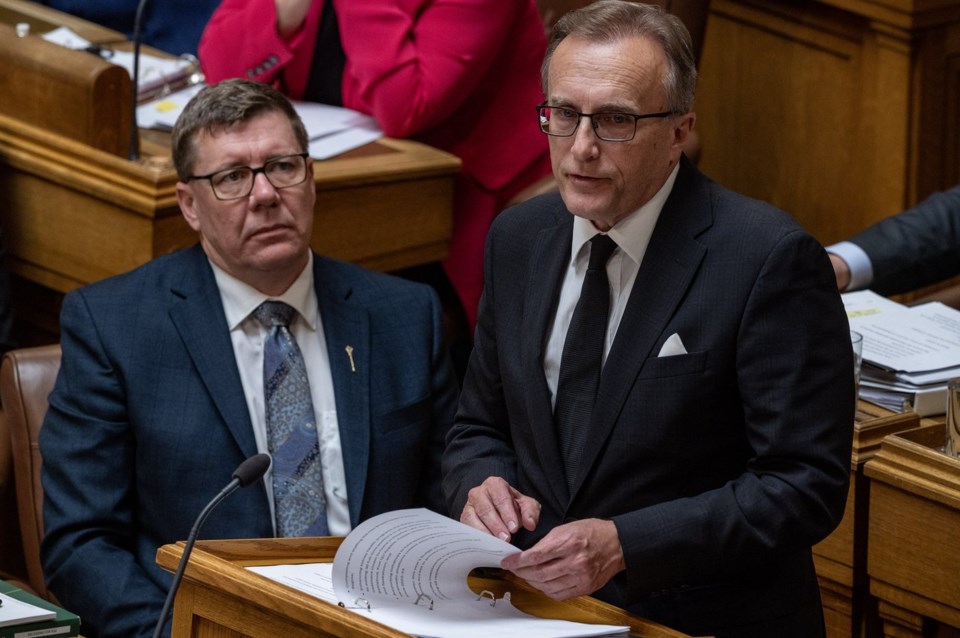SASKATOON — Saskatchewan's financial fortunes this year have taken a dramatic hit.
The province had budgeted a $12-million surplus this fiscal year, but a first-quarter update issued Friday announced that the modest surplus is now on track to be a $349-million deficit.
Saskatchewan Finance Minister Jim Reiter told reporters Friday the province is being rocked by global uncertainty, but its overall financial position remains stable.
"Certainly, we would much rather have a surplus," he said.
"I think it's important to put it in perspective with all the other economic indicators. We're at or near the top compared to every other province in the country."
The province is tying the reversal to a $172-million drop in revenues, most of it from its Crown agency, SaskPower.
That decline is primarily due to Saskatchewan's decision to remove the federal carbon levy ratepayers had paid on their electricity bills in a dispute between Premier Scott Moe’s government and the federal Liberal government.
Earlier this year, Moe announced the province paused the industrial carbon levy it had collected from SaskPower and heavy emitters. Ratepayers paid for SaskPower's portion of the charge on their electricity bills.
The money went to the province's output-based performance program, which used the dollars on technology projects to lower emissions. Some of that money was also earmarked to stabilize electricity rates.
Asked if Saskatchewan will continue to no longer collect the federal industrial carbon levy, Reiter said he'll continue to push Ottawa to remove the charge.
"This is an affordability measure," he said. "We're not charging the carbon tax to the citizens of Saskatchewan who are having affordability issues."
Prime Minister Mark Carney had removed consumer carbon levies earlier this year, but Ottawa still applies carbon charges to industrial emitters.
Reiter said it's too early to project how Chinese tariffs on Canadian canola seed, oil and meal, along with broad U.S. duties, will affect the province's finances.
"We've got to be flexible. We've got to see how it turns out," he said. "I'd say we're concerned because there's the impact in a lot of areas."
The first-quarter update says total revenue for the year is now forecast to be $20.9 billion and expenses are predicted to be $21.2 billion.
Non-renewable resources revenue is also projected to decline by $30 million compared with the budget because of lower oil prices and a higher exchange rate. The province is also spending an extra $80 million to fight wildfires this summer.
Saskatchewan's net debt-to-GDP remains healthy while job growth is on track, the report says.
"We're going to keep an eye on the coffers, but we're also going to respond when the people of Saskatchewan need it," Reiter said. "They need it for wildfires and we're going to continue properly funding health care, education, social services, highways."
The Opposition NDP accused Moe's Saskatchewan Party government of not properly budgeting or planning for the future.
"This is about basic honesty and integrity. They passed a budget they knew was nonsense," finance critic Trent Wotherspoon said in a news release Friday.
The NDP noted the province is still forecasting to collect $35 million more in industrial carbon levies this year through the output-based performance program, for a total of $467 million.
The finance ministry didn't immediately respond to a request for comment about the additional dollars in the program.
Reiter accused the NDP of contradicting itself: they've accused the province of cuts, but also say Moe needs to rein in spending.
"It's kind of laughable, to be honest with you," he said.
This report by The Canadian Press was first published Aug. 22, 2025.
Jeremy Simes, The Canadian Press


